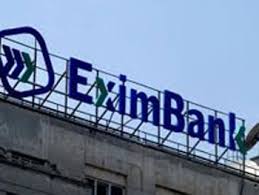Federal Minister for Finance and Revenue Senator Muhammad Aurangzeb emphasized that reviving the Export and Import (Exim) Bank is a key government priority, which is critical for driving export-led economic growth.
He was briefing the Senate’s Standing Committee on Finance, which decided to conduct quarterly reviews of the bank’s progress. Senator Salim Mandviwalla, chair of the committee, highlighted delays in Exim Bank’s operational readiness, pointing out that its CEO was not appointed in over two years. He described the state of the bank as “very fragile,” despite recent progress.
The finance minister outlined Exim Bank’s potential to enhance exports over the next two to three years, adding that the country’s economy was stabilising due to recent government policies.
He noted that the policy rate has been reduced by 9 basis points, bringing the Karachi Interbank Offered Rate (KIBOR) below 12% and effectively halving borrowing costs. He projected that the impact of these measures would become evident in the coming months.
The committee was informed that Exim Bank is managing Rs421 billion under the export finance scheme and implementing a Rs230 billion enhancement approved by the prime minister. The bank allocates 40% of its resources to small and medium enterprises (SMEs) and 60% to corporates. Exim Bank surpassed its first-year target under the IMF structural benchmark, achieving 168% of the goal.
Addressing inflation, the minister admitted that middlemen were resisting price reductions for essential goods despite falling global commodity and oil prices. He called for stronger administrative measures to address price manipulation.
On broader economic policies, the minister reiterated Pakistan’s commitment to the IMF loan program, stating that it ensures structured and sustainable growth. He cautioned against excessive economic acceleration, citing balance of payments pressures from past missteps.
The committee also discussed other matters, including Federal Excise Duty (FED) on electric vehicles (EVs). FBR officials clarified that no FED would be charged on EVs following a legal opinion from the Ministry of Law and Justice.
The committee reviewed remittances under the Pakistan Remittances Initiative (PRI). State Bank of Pakistan (SBP) officials reported an increase in remittances from $7-8 billion in 2009 to an expected $35 billion this fiscal year.
Last year, the SBP paid Rs86 billion to banks to cover remittance-related charges. The committee requested detailed, year-wise remittance data and the corresponding fees paid by the SBP.
The meeting also addressed pay fixation issues for Senate Secretariat staff, with AGPR officials stating that a relevant policy no longer exists and the matter is pending court resolution.




